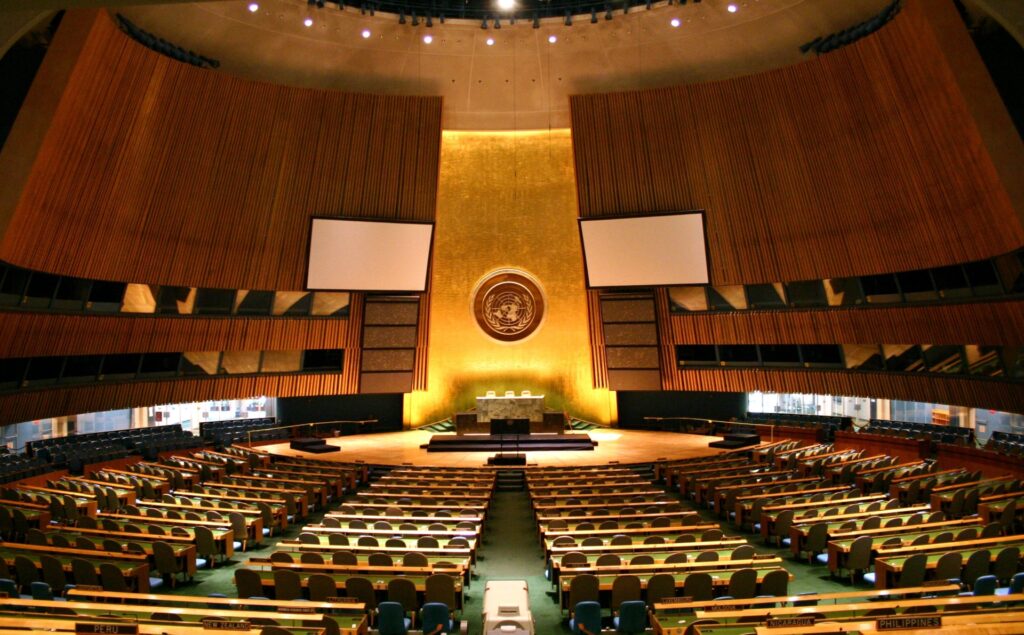Manas Dasgupta
NEW DELHI, Nov 12: India has voted in favour of a resolution in the UN General Assembly that condemned Israeli settlement activities in the “Occupied Palestinian Territory.”
The draft resolution titled ‘Israeli settlements in the “Occupied Palestinian Territory”, including East Jerusalem, and the occupied Syrian Golan’ was approved by the Special Political and Decolonisation Committee (Fourth Committee) of the UN General Assembly by 145 votes in favour, seven against and 18 abstentions.
Those voting against the resolution were Canada, Hungary, Israel, Marshall Islands, Federated States of Micronesia, Nauru and the United States. India was among the 145 nations that voted in favour of the resolution along with Bangladesh, Bhutan, China, France, Japan, Malaysia, Maldives, Russia, South Africa, Sri Lanka, and the U.K.
This comes weeks after India abstained from a vote on a UN resolution calling for “immediate, durable and sustained humanitarian truce” between Israel and Hamas in the Gaza Strip. By the terms of the resolution, the Assembly would condemn settlement activities in the “Occupied Palestinian Territory”, including East Jerusalem, and in the occupied Syrian Golan and any activities involving the confiscation of land, the disruption of the livelihood of protected persons, the forced transfer of civilians and the annexation of land, whether de facto or through national legislation.
The resolution “Reaffirms that the Israeli settlements in the “Occupied Palestinian Territory”, including East Jerusalem, and in the occupied Syrian Golan are illegal and an obstacle to peace and economic and social development.”
The resolution reiterated “its demand for the immediate and complete cessation of all Israeli settlement activities in all of the “Occupied Palestinian Territory”, including East Jerusalem, and in the occupied Syrian Golan.”
The war between Israel and Hamas, triggered by the October 7 attacks on Israel, has claimed over 12,000 lives in Gaza. About 1,400 Israelis were killed in the Hamas attacks and over 200 taken hostage.
Explaining its decision to abstain in the earlier vote, sources in the government had said India is concerned over the unfolding humanitarian crisis in Gaza but also believes that there can be no equivocation on terror.
“The Resolution in the UNGA did not include any explicit condemnation of the terrorist attacks of October 7. An amendment was moved to include this aspect, prior to the vote on the main resolution,” a source said. India voted in favour of the amendment and it obtained 88 votes in favour but not the requisite two-thirds majority, the source said. “In the absence of the all elements of our approach not being covered in the final text of the resolution, we abstained in the vote on its adoption,” the source added.
Government sources said New Delhi’s decision on the resolution was guided by its “steadfast and consistent position” on the issue and its explanation of vote reiterated this comprehensively and holistically.
Explaining New Delhi’s vote, India’s Deputy Permanent Representative, Yojna Patel, had then said: “Our thoughts are also with those taken hostages. We call for their immediate and unconditional release.” “This humanitarian crisis needs to be addressed. We welcome the international community’s de-escalation efforts and delivery of humanitarian assistance to the people of Gaza. India too has contributed to this effort,” she had said.
“India has always supported a negotiated Two-State solution to the Israel-Palestine issue leading to the establishment of a sovereign, independent and viable State of Palestine living within secure and recognized borders, side-by-side in peace with Israel,” she had said.
Soon after the October 7 attacks, the Prime Minister Narendra Modi had described the Hamas strike as a “terrorist” action. The government’s unequivocal support for Tel Aviv, with no mention of Palestine, has turned into a more balanced response to the crisis as the war’s human cost climbs. In later statements on the issue, the Ministry of External Affairs has said it had “always advocated… direct negotiations towards establishing… a sovereign, independent, and viable state of Palestine.”

